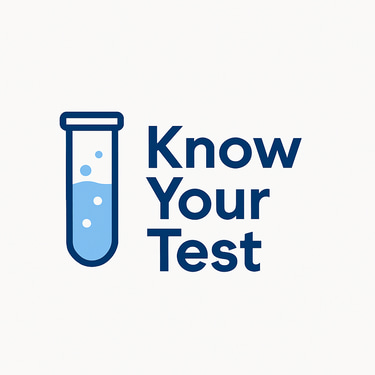hCG Test – Everything You Need to Know About Pregnancy Detection
This article clearly explains what the hCG test is, how it detects pregnancy, the differences between urine and blood testing, the best time to take it, and where to find reliable options in the U.S. for fast and accurate results.
PREGNANCY TESTING


What Is an hCG Test?
The hCG test is a medical test used to detect the presence of human chorionic gonadotropin (hCG), a hormone produced during pregnancy. Shortly after a fertilized egg attaches to the uterine lining, the body begins producing hCG, which can be found in blood and urine. Its detection is the basis for most pregnancy tests, both at-home and laboratory-based.
How It Detects Pregnancy
hCG levels rise rapidly in early pregnancy, typically doubling every 48 to 72 hours in the first weeks. Measuring its presence allows healthcare providers—or reliable lab services—to confirm pregnancy, often before noticeable symptoms appear.
Types of hCG Tests
There are two main ways to measure hCG:
Urine hCG Test – Commonly used in home pregnancy kits and in clinics. It’s quick and convenient, but slightly less sensitive than blood testing.
Blood hCG Test – Conducted in a lab, it can be:
Qualitative: Simply confirms whether hCG is present (“yes” or “no”).
Quantitative: Measures the exact amount of hCG, useful for tracking pregnancy progression.
For most people seeking pregnancy confirmation, the qualitative blood test offers greater sensitivity and earlier detection than urine tests.
When to Take the hCG Test
The ideal timing depends on the type of test:
Urine tests: Best taken after a missed period for greater accuracy.
Blood tests: Can detect pregnancy about 6–8 days after ovulation, earlier than most urine tests.
Taking the test too early may result in a false negative, so timing is important.
Accuracy and Limitations
Both urine and blood hCG tests are highly accurate when taken at the right time. However, certain factors—such as testing too soon, diluted urine, or specific medical conditions—can affect results. If results are unclear, retesting or consulting a healthcare professional is recommended.
Where to Get a Reliable hCG Test in the U.S.
In the United States, many laboratories allow you to order an hCG test directly, without a doctor’s referral. One option is HealthLabs.com, which offers fast, private, and affordable testing. Benefits include:
Direct-to-consumer ordering—no doctor or insurance required
Access to over 4,500 CLIA-certified U.S. labs
Easy online ordering and scheduling
Results typically available in 1–3 days
This flexibility makes it possible to confirm pregnancy quickly and confidentially.
Conclusion
The hCG test is one of the most reliable methods for confirming pregnancy, especially in its early stages. Knowing the differences between urine and blood testing, when to test, and where to find a trustworthy lab can help you make informed health decisions. If you want a lab-quality test with quick results and no referral needed, services like HealthLabs offer convenient and accurate solutions.
Disclaimer
This content is for informational purposes only and does not substitute medical advice. If you have symptoms or questions, consult a qualified healthcare provider.
References
National Library of Medicine. HCG in urine: MedlinePlus Medical Encyclopedia
National Library of Medicine. HCG blood test - qualitative: MedlinePlus Medical Encyclopedia
American Pregnancy Association. (2023). Pregnancy Tests – Types, Accuracy and Timing. https://americanpregnancy.org/getting-pregnant/pregnancy-tests/
Insights
Understanding lab tests for better health decisions.
Support
© 2025. All rights reserved.
